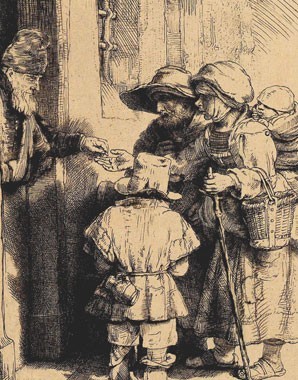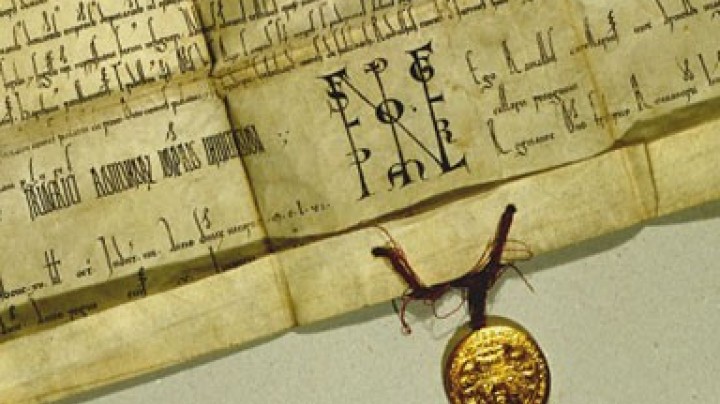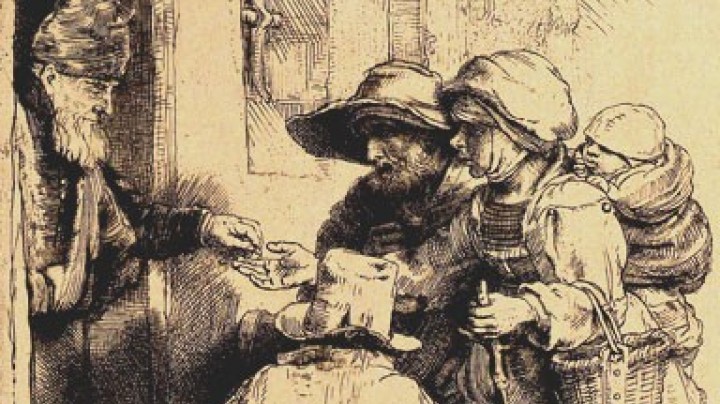Of maids and day labourers, craftsmen and the ‘unhoused’ – Social groups in the countryside
The countryside was not populated solely by peasants. Maids, farm-hands and day labourers also lived and worked there. Craftsmen, miners and the ‘unhoused’ did so too, though these were outside the agricultural sector.
In the late Middle Ages the peasants did not form a unified social group. There was a small group of such farmers who were well-off, but the majority of them cultivated plots of agricultural land some of which were only of medium size, while others were small or even tiny. A farming household also included a body of servants (Gesinde), that is to say farm-hands and maids who worked in return for wages, board and lodging, and in some cases also for clothing. If farm-hands and maids terminated their employment before the end of the customary one-year period without giving a good reason for doing so they often forfeited all of their wages. On the other hand the farmer who employed them could not dismiss them without due cause. The farm household was mainly made up of those children of the peasant farmer himself who were not entitled to receive any of his legacy and unmarried people, including the illegitimate children of servants. In particular at harvest time day labourers were employed; in winter, however, there was not much work for them and often they needed to beg for money. Their wages were laid down by the authorities and varied according to the kind of work done and whether they were male or female, with women being paid less. The countryside was not only home to the farming communities but also to craftsmen, who, often with one foot in agriculture, increasingly made themselves independent, much to the annoyance of craftsmen in towns. For example, working as craftsmen provided those peasant farmers’ sons who were not entitled to an inheritance with a way of earning a living.
In some places the countryside was also home to miners, whose wages were also laid down and among whom there were strongly marked social differences. Other groups outside the peasantry included the so-called ‘unhoused’, who did not have fixed accommodation and thus lived as vagrants. This group, which led an existence on the fringes of society, was mainly made up of people who had been forced to lead an itinerant life as a result of war, failed harvests, famines or crises affecting craftsmen, as well as of illness or mental or physical disabilites. However, those who roamed the countryside also included journeymen and servants looking for work, acrobats and players, tooth-pullers, prostitutes and unmarried mothers who had been ostracized by society.














